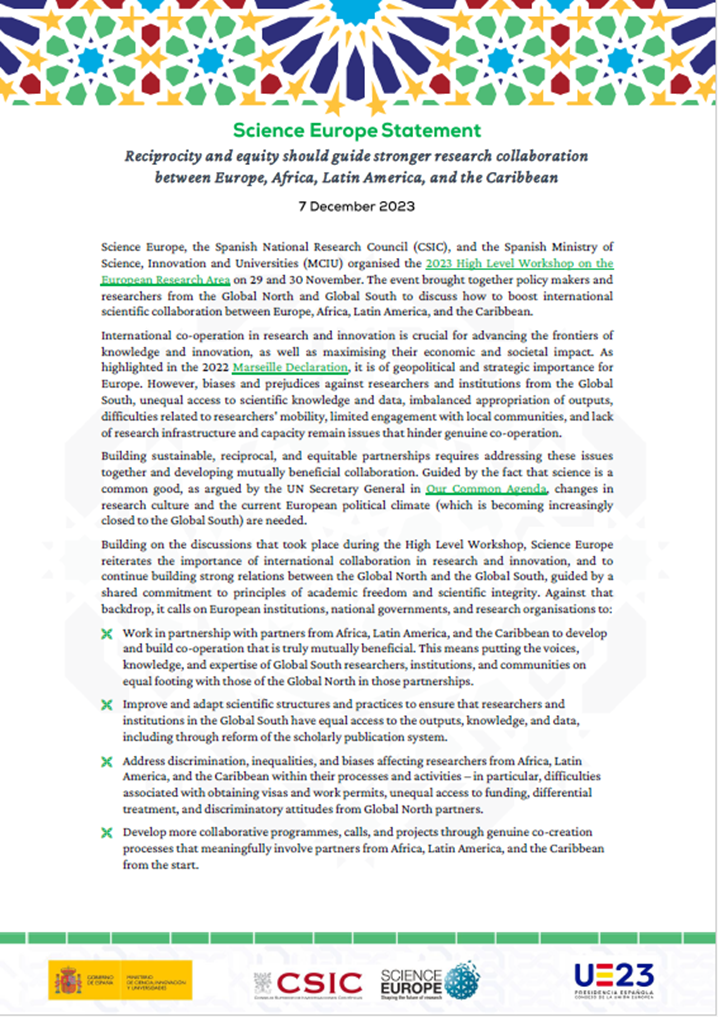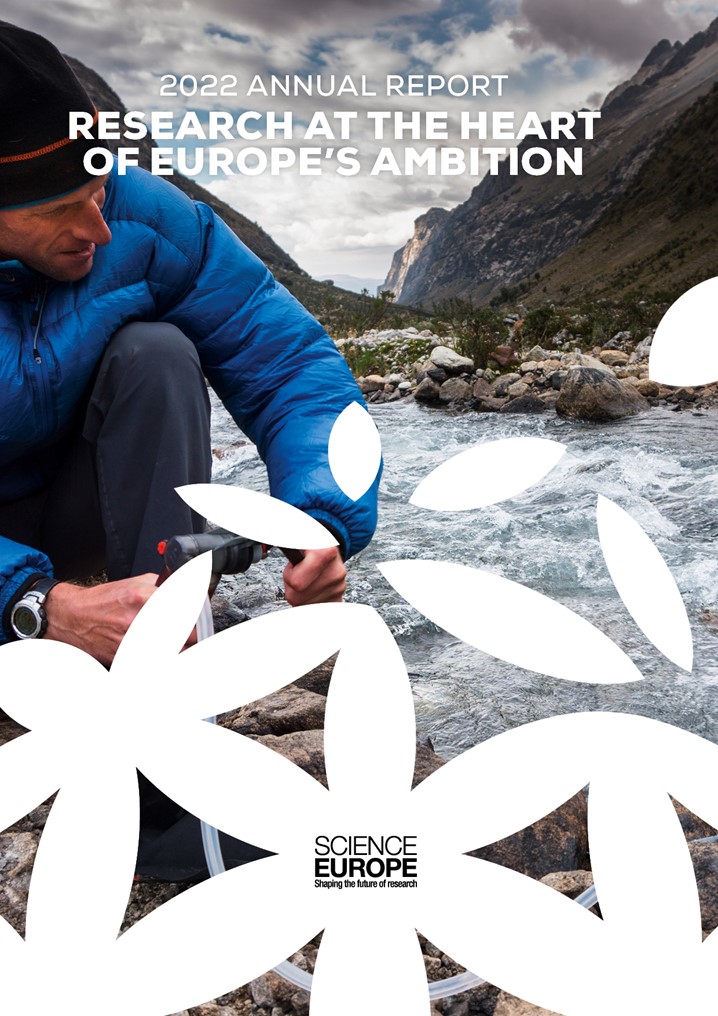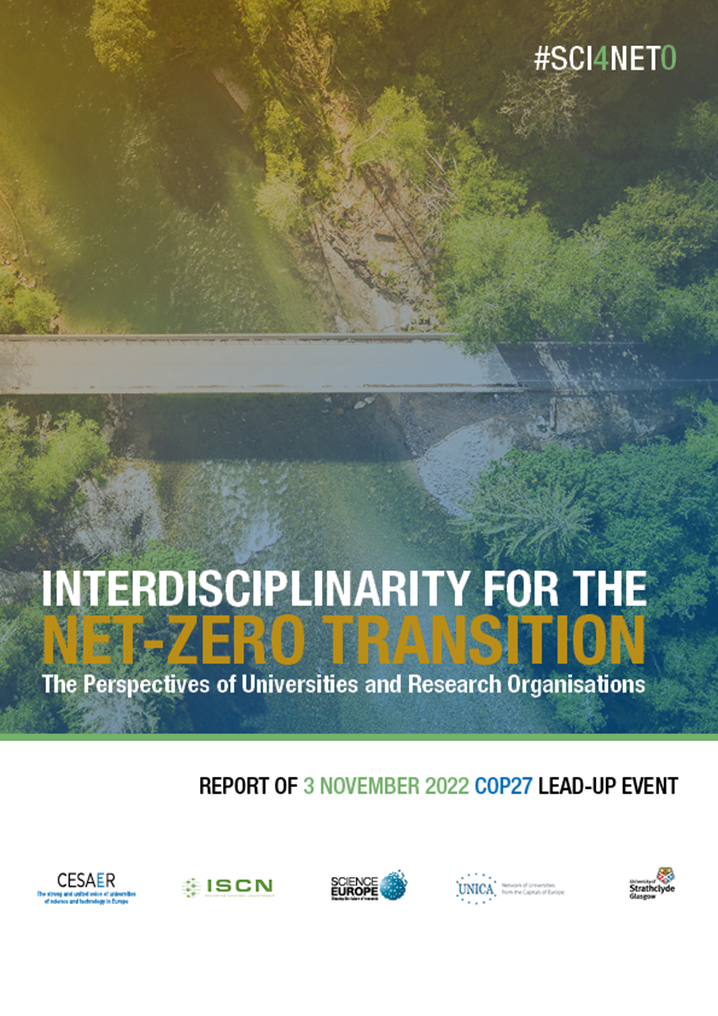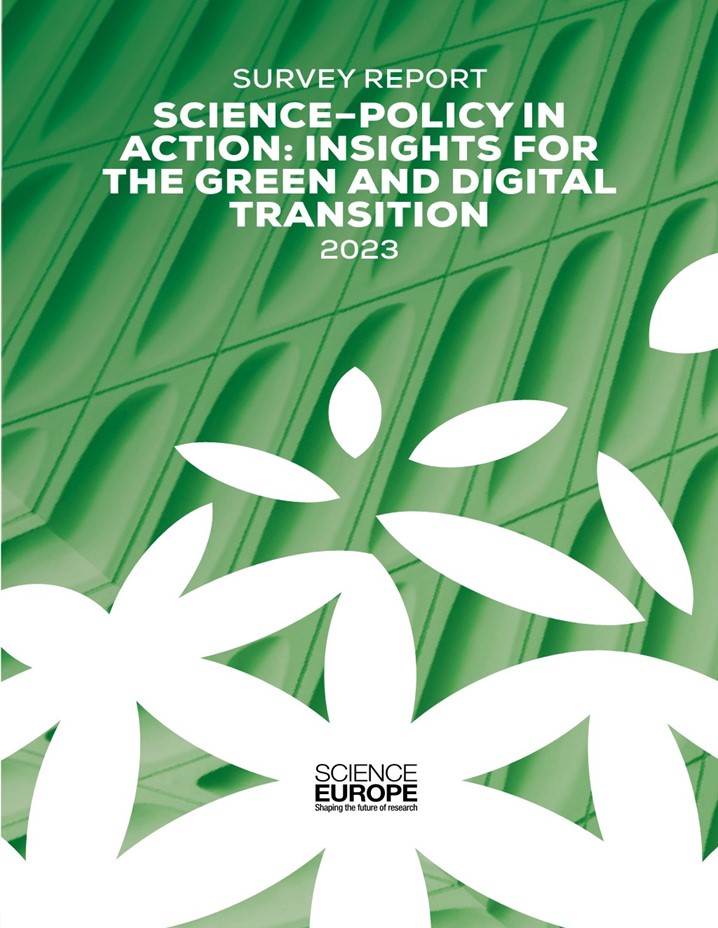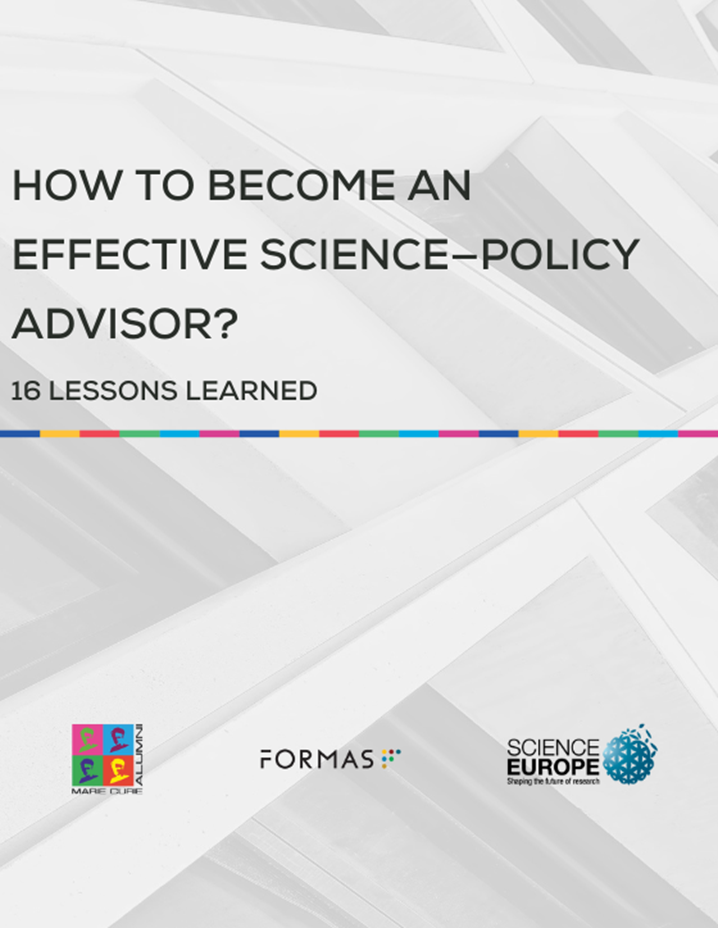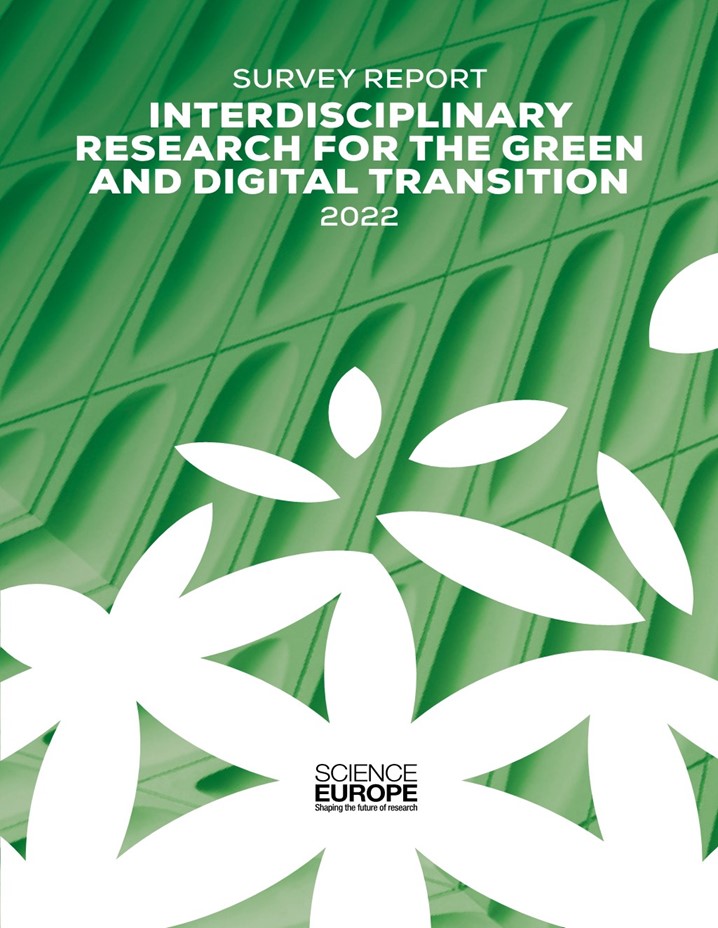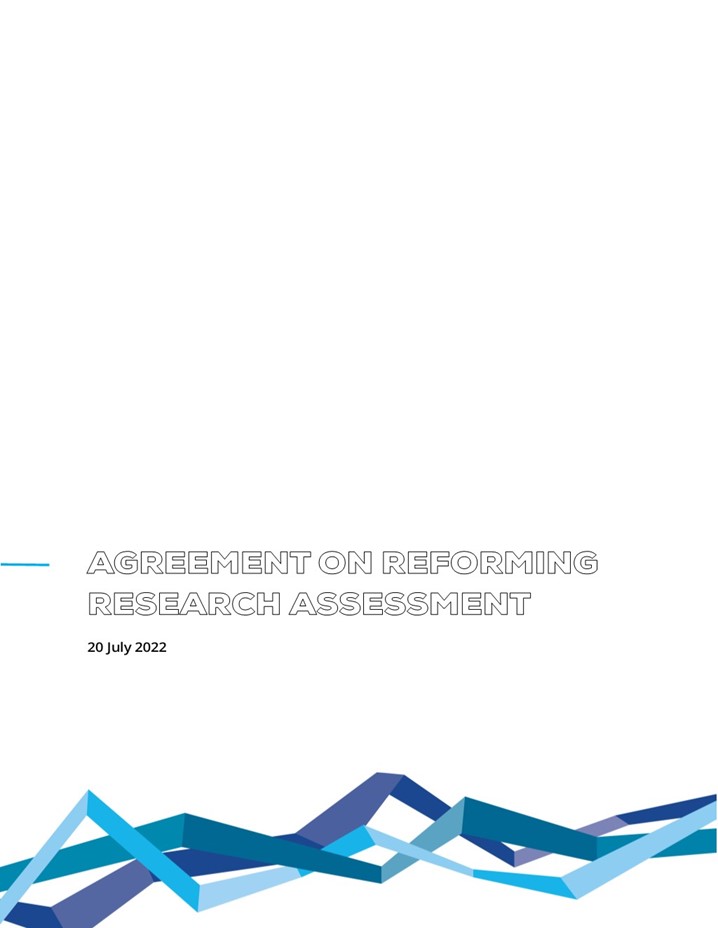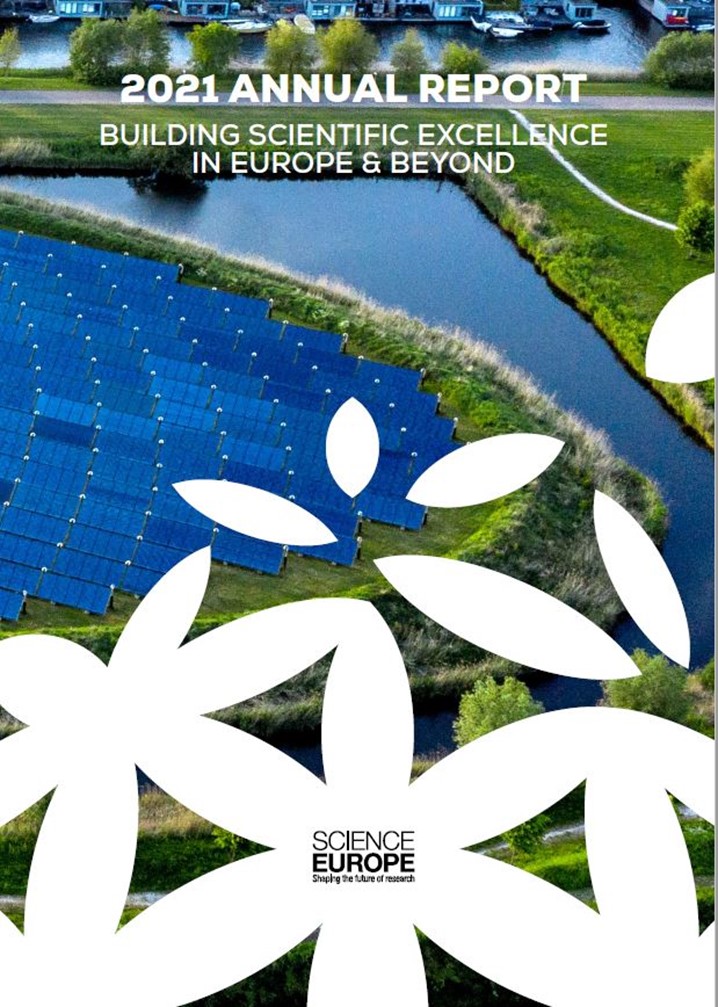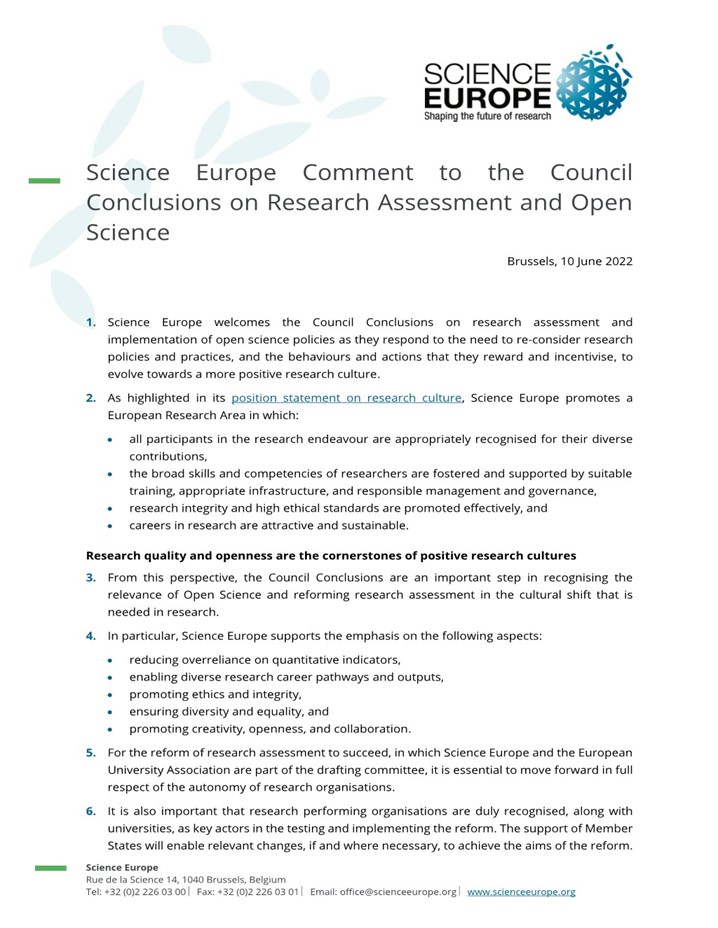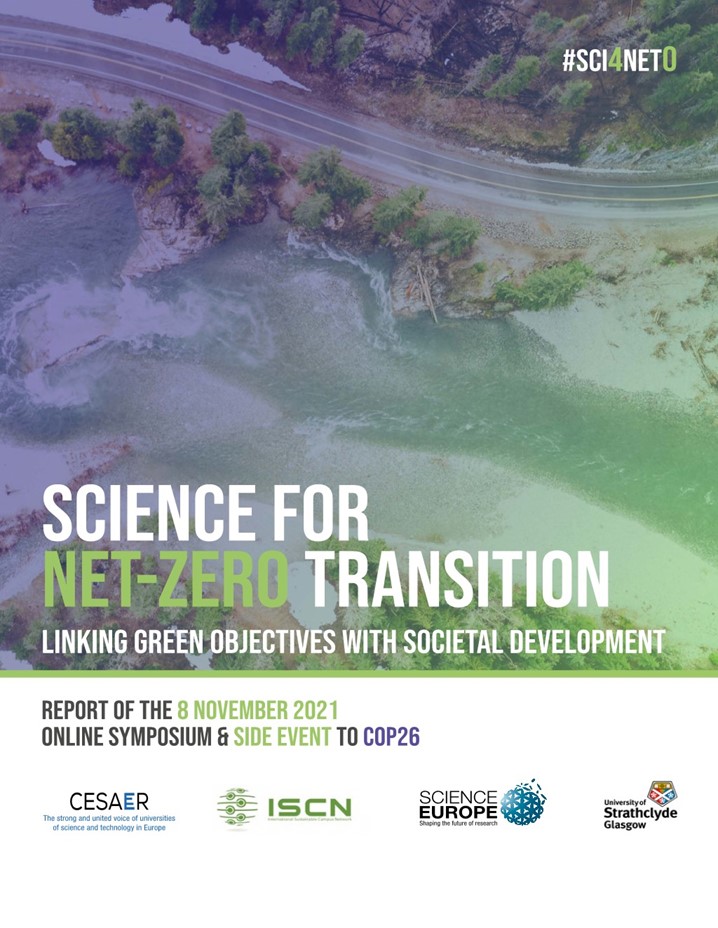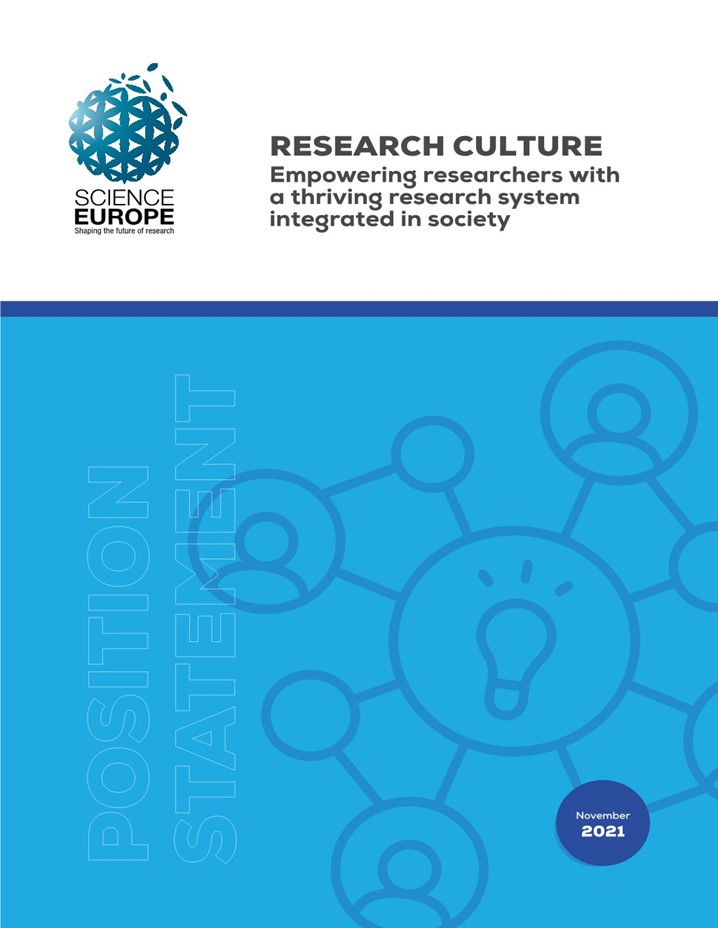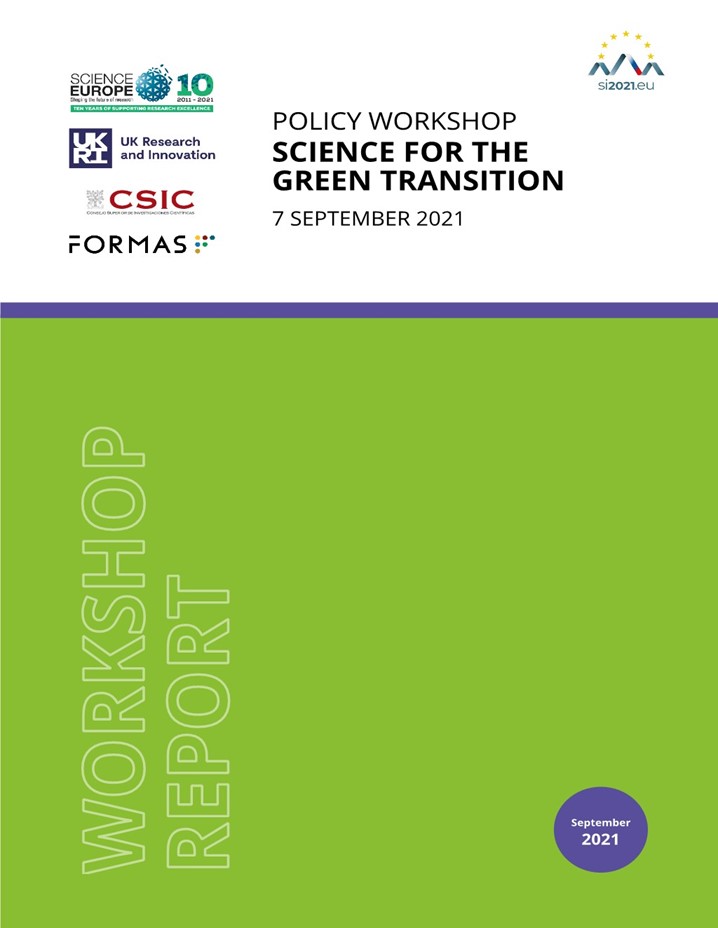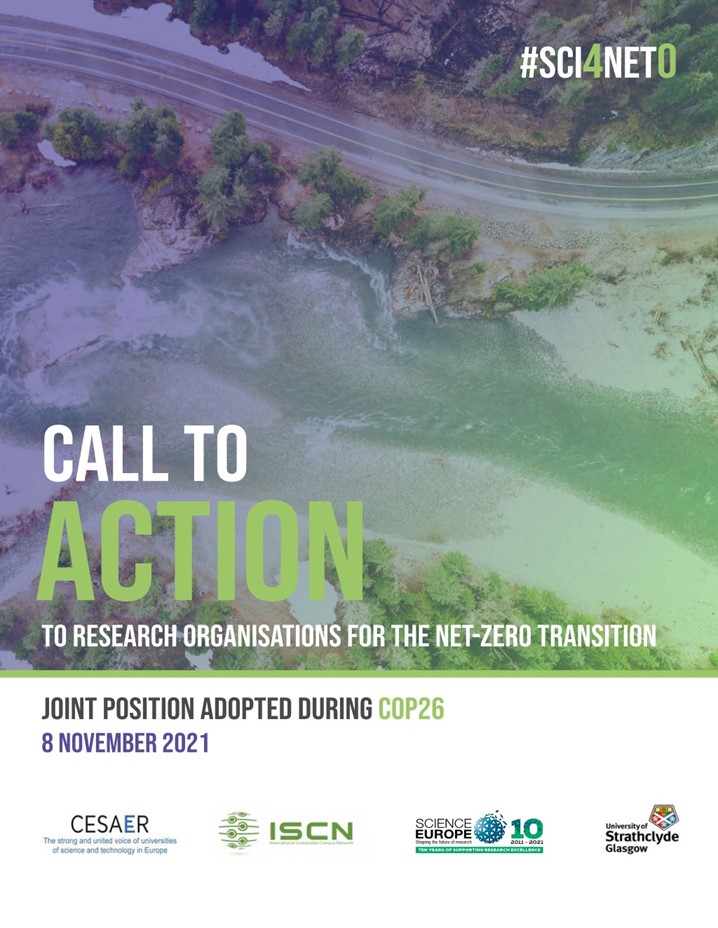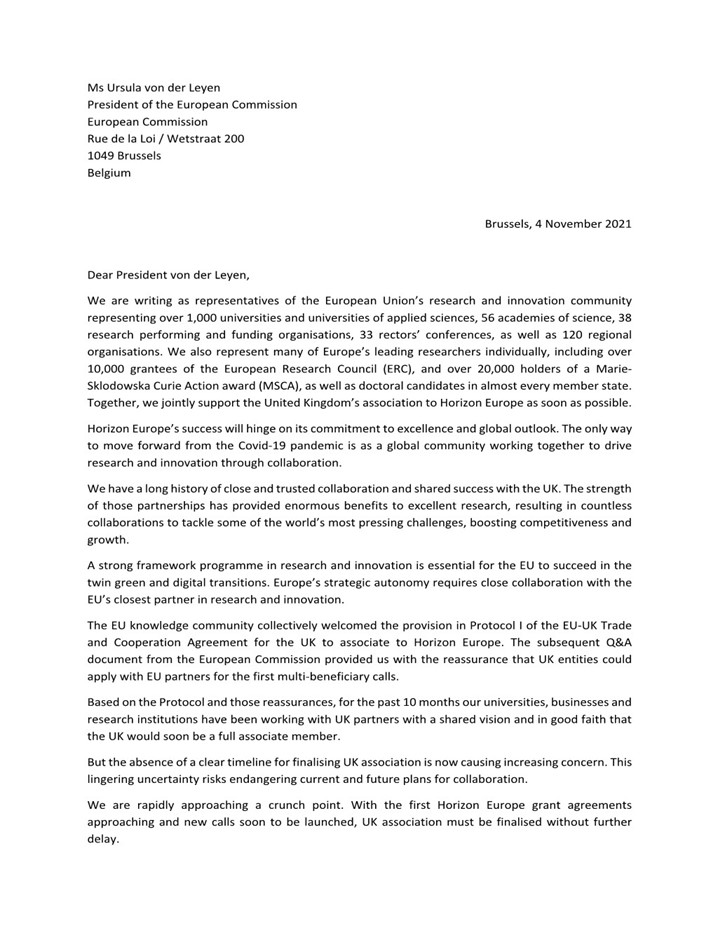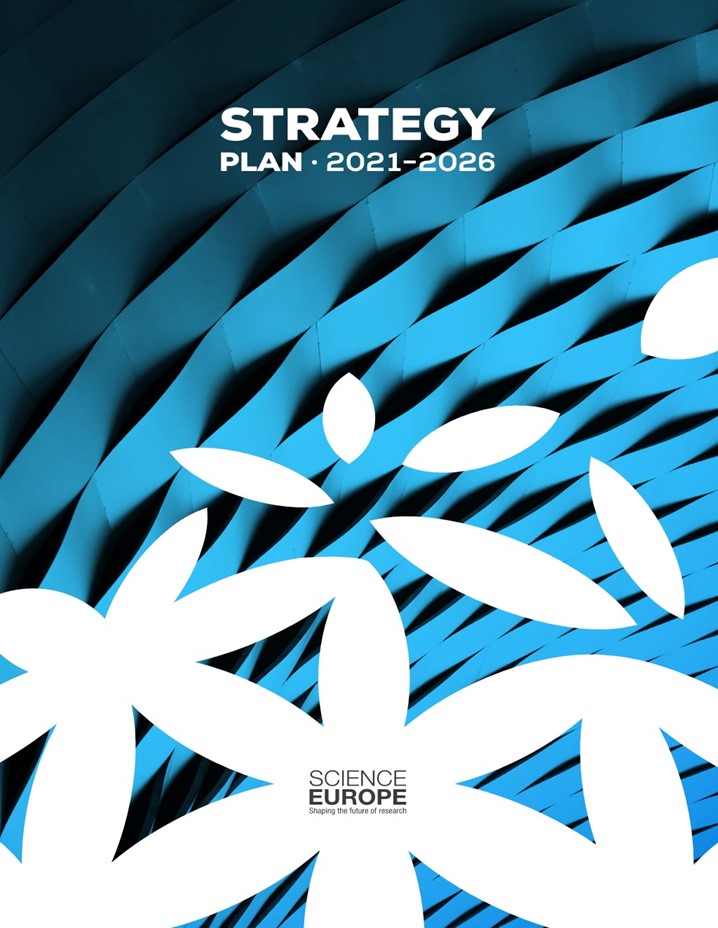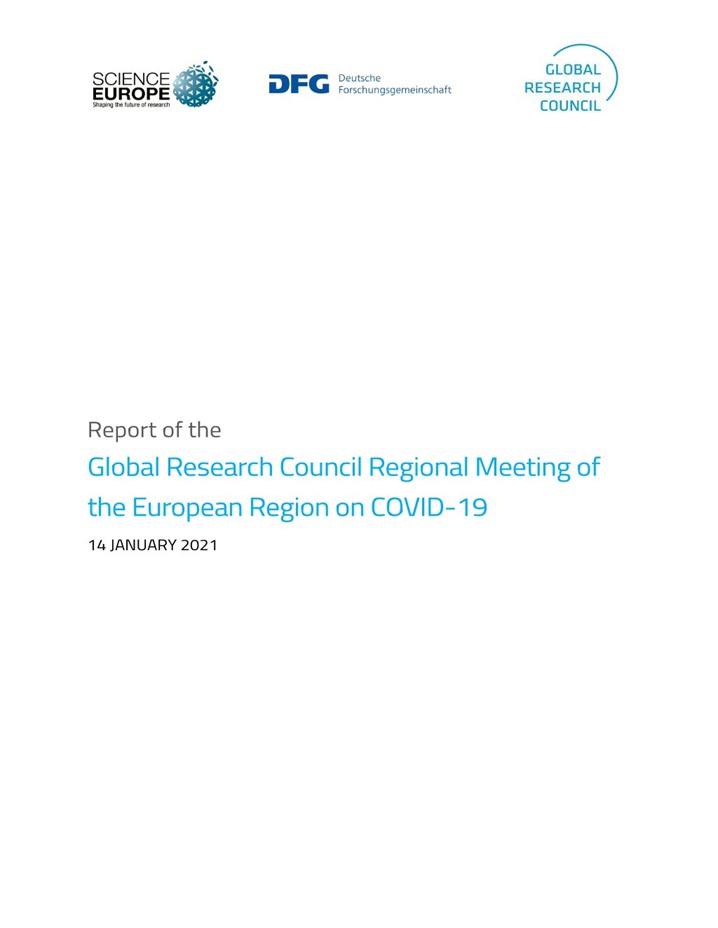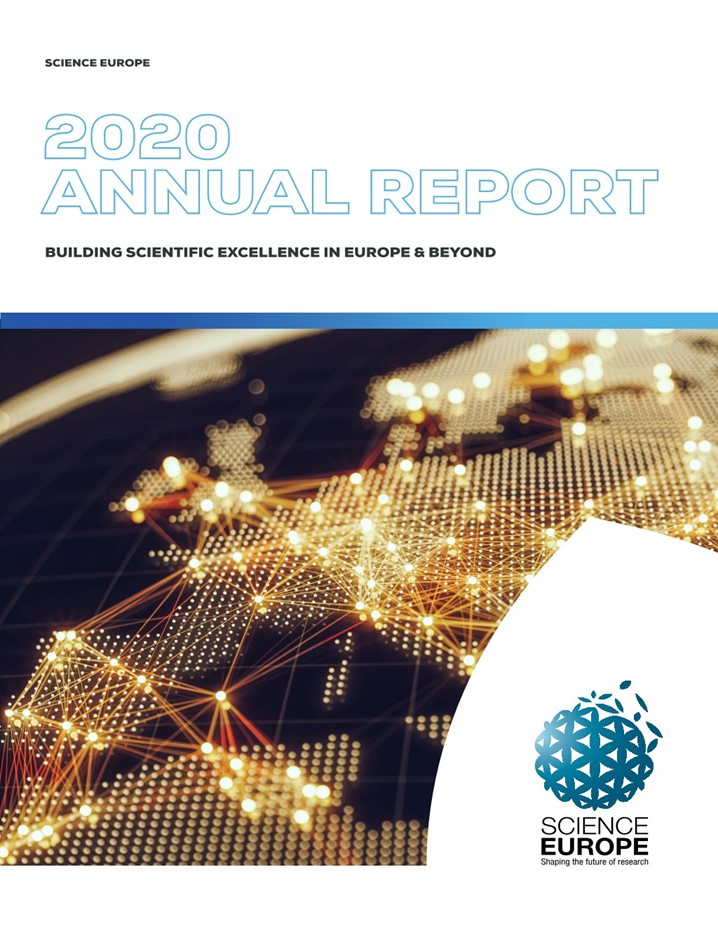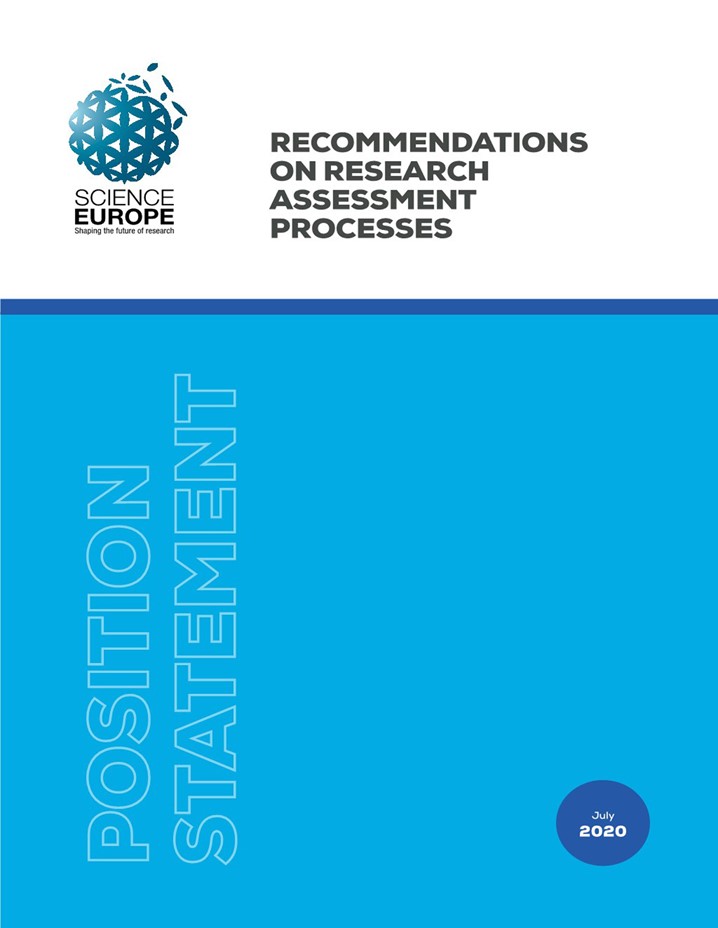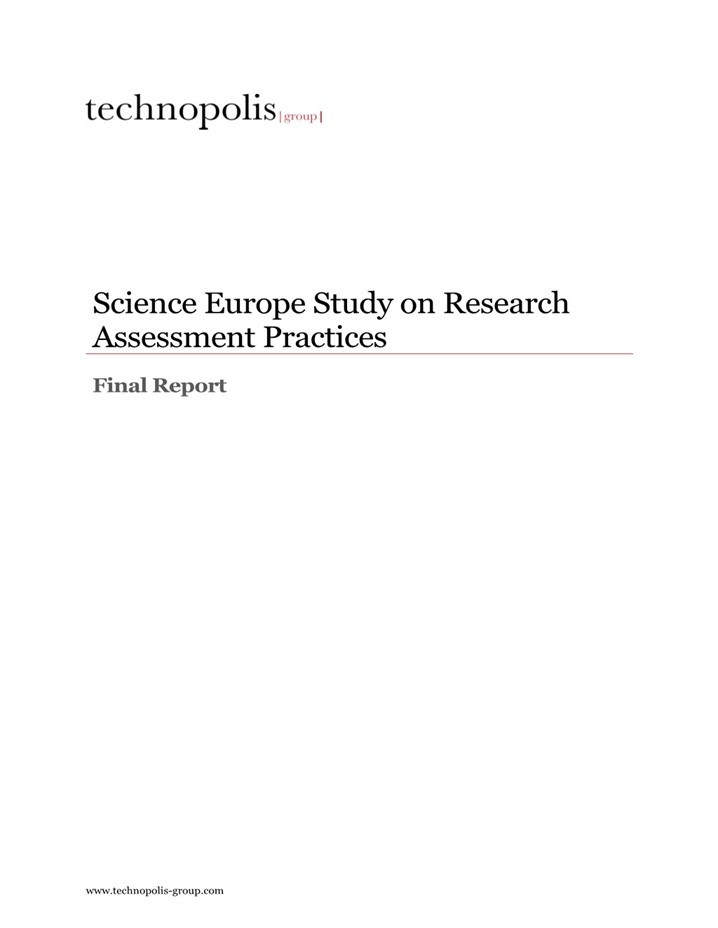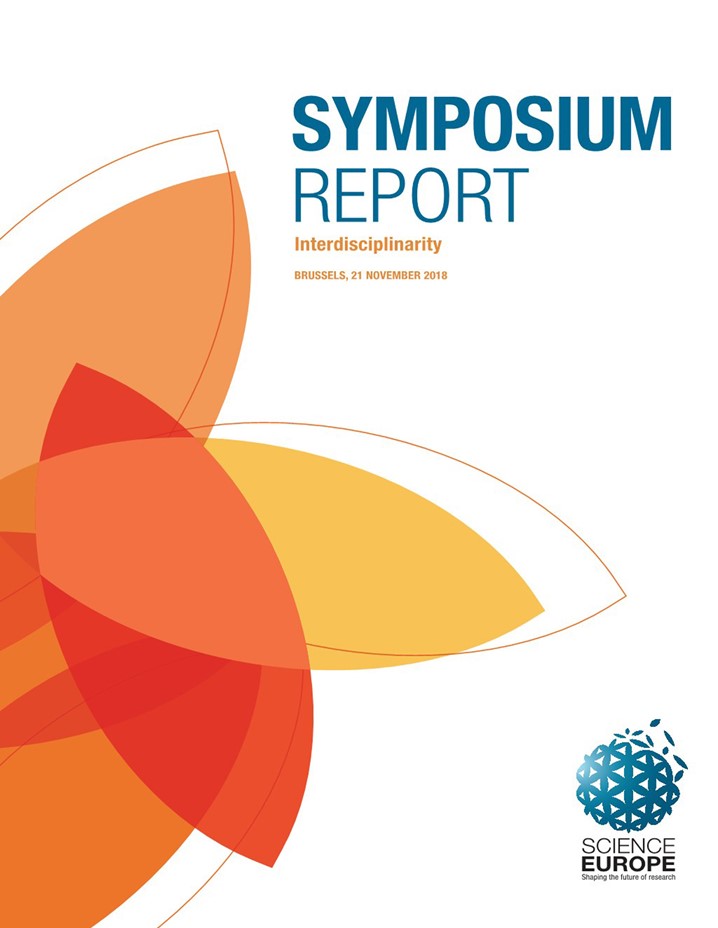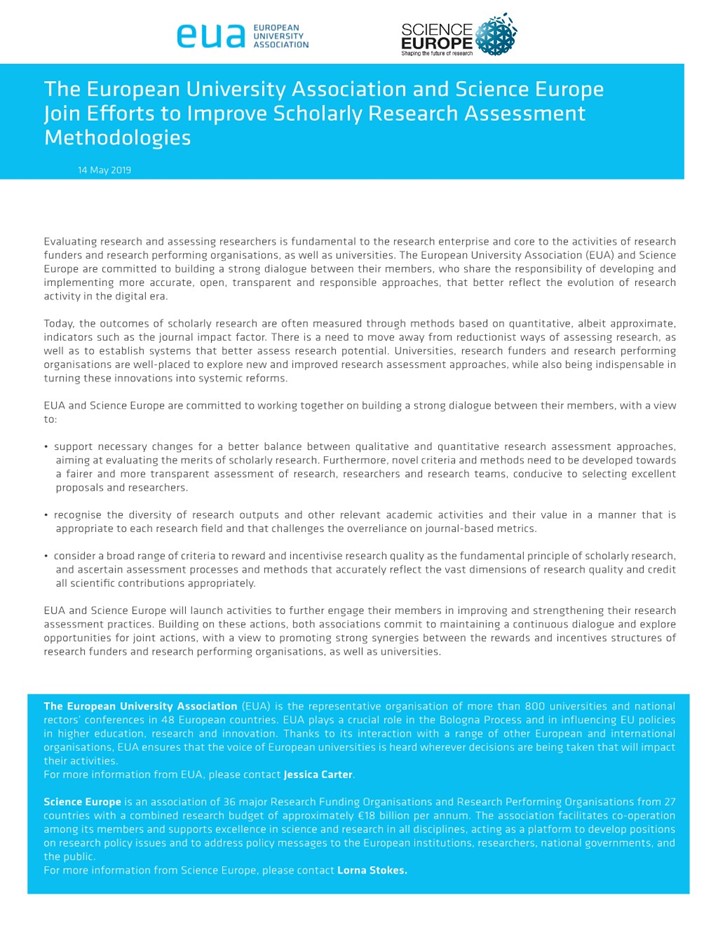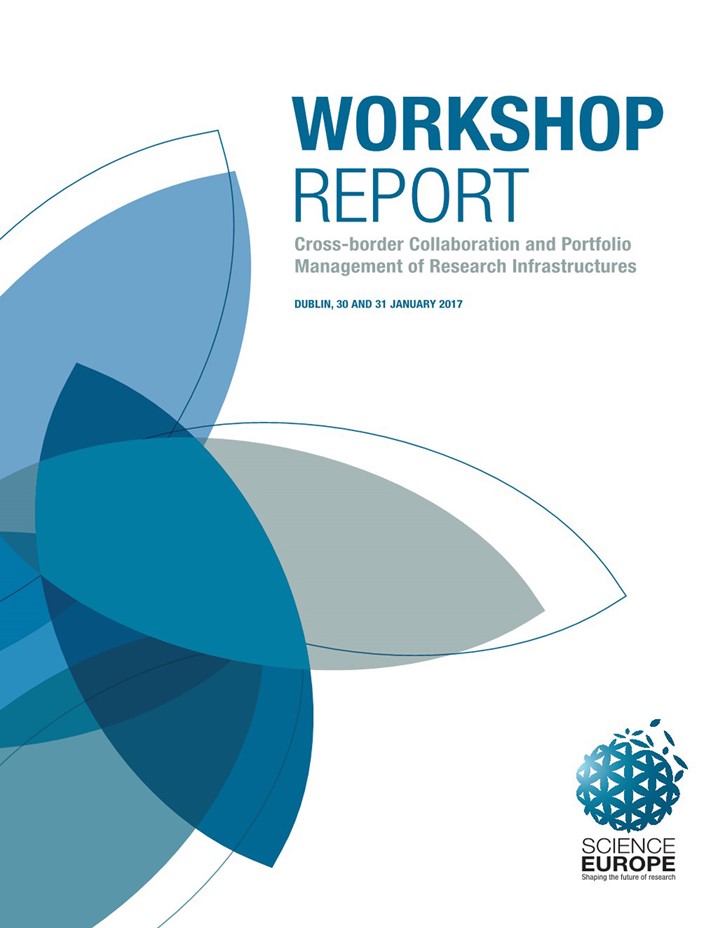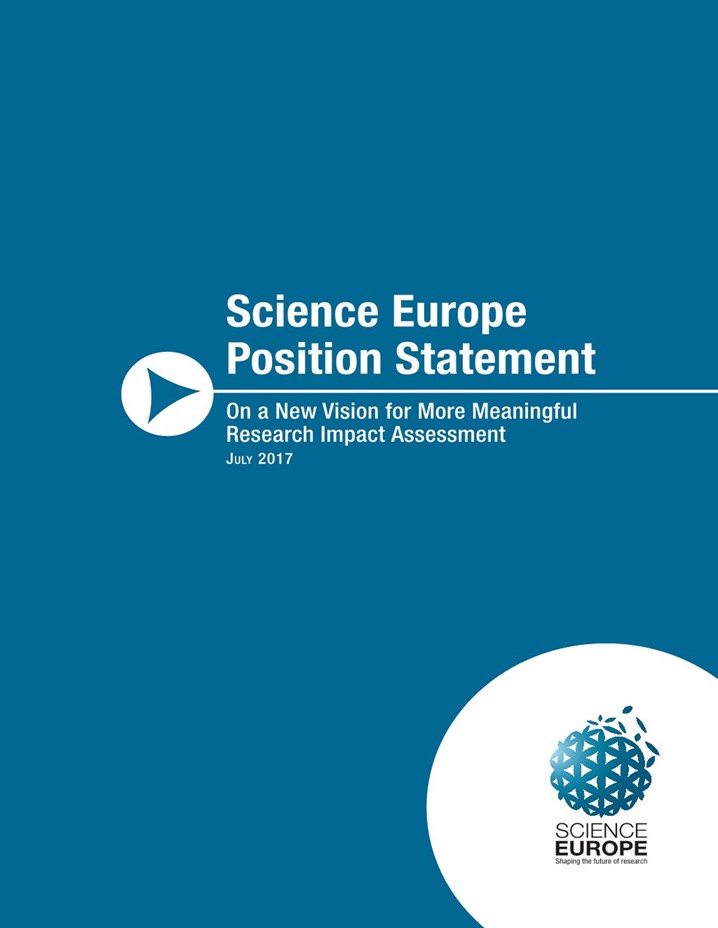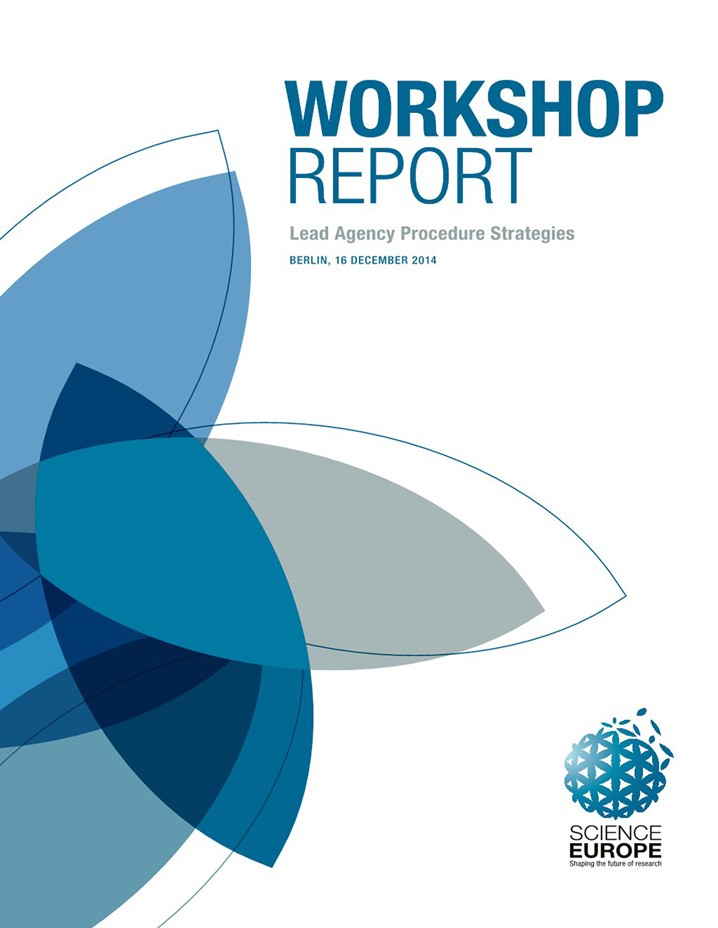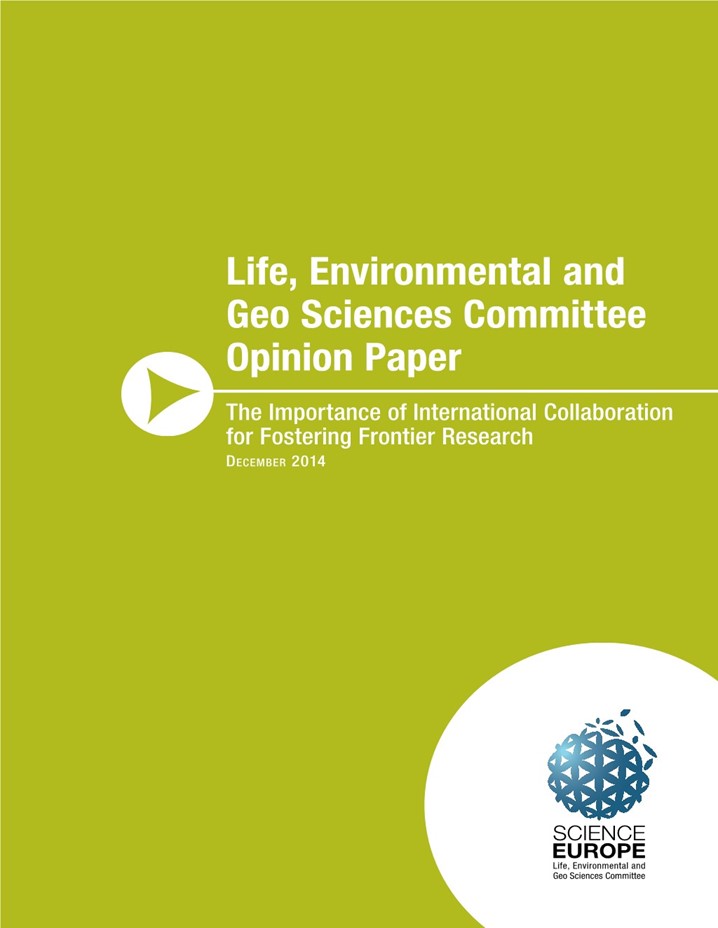Member-only content is available on this page. Please log in to view this content.

Our resources
Discover Science Europe’s comprehensive library of resources, including the most recent publications, briefings, and position statements.
52 resource(s) found
Statement on International Research Collaboration
This statement presents some of the high-level outcomes from the 2023 High Level Workshop on 'Challenges to Reciprocity and Equitable Collaboration between Europe, Africa, Latin America, and the Caribbean'.
Research at the Heart of Europe’s Ambition – 2022 Annual Report
In 2022, Science Europe made significant contributions in various areas, including research culture, research assessment, open science, EU framework programmes, the green and digital transition, and science communication.
Interdisciplinarity for the Net-Zero Transition: the Perspectives of Universities and Research Organisations
This report presents the actions that universities and research organisations are taking to address the climate crisis and the challenges they face. These were presented at the symposium 'Interdisciplinarity for the Net-Zero Transition' of 3 November 2022, in the lead-up to COP27.
Science–Policy in Action: Insights for the Green and Digital Transition
This report aims to identify activities for science-informed policy making, to map those funded and performed by Science Europe Member Organisations, and suggests some recommendations. It is based on a survey held among Science Europe Member Organisations and a subsequent focus group.
How to Become an Effective Science-Policy Advisor? 16 Lessons Learned
How to become an effective science-policy advisor? The science-policy interactions have a longstanding relationship with complex dynamics. The COVID pandemic was only one of the ‘wicked problem’, where decision-makers called for science-informed advice. This report showcases 16 lessons learnt from the event Good Advice for (Young) Science-Policy Advisors, organised by Science Europe, FORMAS and Marie Curie Alumni Association on 29 April 2022.
Interdisciplinary Research for the Green and Digital Transition
Science Europe surveyed its Member Organisations on existing practices and policies for interdisciplinary research for the Green & Digital Transition. This report presents the results and some recommendations to reinforce, develop, and improve them.
Agreement on Reforming Research Assessment
This Agreement sets a shared direction for changes in assessment practices for research, researchers, and research performing organisations, with the goal to maximise the quality and impact of research. It includes principles, commitments, and timeframes for reforms and lays out principles for a Coalition of organisations willing to work together in implementing the changes.
Science Europe 2021 Annual Report
For Science Europe, 2021 was a very important year: the association celebrated its 10th year of existence. Founded in 2011, it has grown into a respected and influential voice in the European research policy debate. Moreover, we published a new Strategy Plan for 2021–2026, which maps our collective objectives and sets a specific yet flexible action framework over the next five years.
Reaction to the Council Conclusions on Research Assessment and the Implementation of Open Science Policies
The Council Conclusions are an important step in recognising the relevance of Open Science and reforming research assessment, which are two essential elements of the cultural shift that are necessary to put research quality and openness are the cornerstones of positive research cultures.
Report of Symposium on Science for Net-Zero Transition: Linking Green Objectives with Societal Development
Report of the 8 November 2021 Symposium 'Science for Net-Zero Transition', co-organised by CESAER, the International Sustainable Campus Network, Science Europe, and the University of Strathclyde, as a side-event to COP26.
Statement on Research Culture - Empowering Researchers with a Thriving Research System
The new statement on Research Culture envisages an ERA that focusses on the quality of research and its processes, supports scientific freedom, and promotes social diversity and inclusion, acknowledging that these conditions will, in turn, foster a productive research system.
Science for the Green Transition
Report of the 7 September Science Europe Policy Workshop 'Science for the Green Transition', co-organised with CSIC, FORMAS, and UKRI. The goal was to study the roles and contributions of research organisations and governments to the green transition.
Call to Action to Research Organisations for the Net-Zero Transition
The partners of the Science for Net-Zero Symposium CESAER, the International Sustainable Campus Network (ISCN), Science Europe, and the University of Strathclyde are calling for a collaborative, systems-based approach to tackling the Net-Zero emissions challenge, and are taking immediate steps to lead by example.
Association of the UK to Horizon Europe must go forward
The European Union’s research and innovation community urges the European Commission and UK Government to work towards a successful UK association to Horizon Europe as soon as possible.
Science Europe Strategy Plan 2021-2026
The Science Europe Strategy Plan comes at a crucial time for European Research an Innovation (R&I) and includes an updated vision, mission, values, and set of strategic priorities for the association. It supports its Member Organisation in their mission to create world-class scientific knowledge, delivering more benefit for our societies.
Report of the GRC Regional Meeting of the European Region on COVID-19
The outbreak of a new type of Coronavirus (SARS-CoV-2) delayed the organisation and hosting of all GRC meetings in 2020. On 14 January 2021, Science Europe and the German Research Foundation (DFG) co-hosted the 2020 regional meeting for the European region on COVID-19.
2020 Annual Report
The year 2020 saw a global pandemic attest to the value of science. In the race for COVID-19 treatments and vaccines, Science Europe’s Member Organisations were at the forefront of the global response and our association became more relevant and important than ever.
Position Statement and Recommendations on Research Assessment Processes
Science Europe calls on research funding and performing organisations to continuously evaluate their research assessment processes to ensure that they are effective, efficient, fair, and transparent.
Science Europe Study on Research Assessment Practices
In 2019, Science Europe conducted a flagship study on research assessment processes and practices. The study was developed and overseen by the Science Europe Task Force on Research Assessment and the Science Europe Office, and implemented by Technopolis Group Vienna.
Science Europe Symposium on Interdisciplinarity
Interdisciplinarity is increasingly used to tackle complex scientific questions and address large societal challenges. At the same time, the evaluation of interdisciplinary research proposals poses a set of problems, ranging from missing common standards and criteria to shortages of peer reviewers with experience in evaluating interdisciplinary research. At its third Symposium, Science Europe and its Scientific Advisory Committee brought together researchers and other experts experienced in interdisciplinarity with high-level representatives from Science Europe’s Member Organisations, who fund and perform such research.
Joint Statement on Research Assessment
Released in partnership with the European University Association (EUA), this joint statement demonstrates a commitment to building a strong dialogue between members of both associations, who share the responsibility of developing and implementing more accurate, open, transparent, and responsible approaches that better reflects the evolution of research activity in the digital era.
Cross-border Collaboration and Portfolio Management of Research Infrastructures
This report explores the challenges facing research funding and performing organisations to design and manage balanced Research Infrastructure (RI) portfolios and design effective cross-border collaborations when setting up and running joint RIs. Discussions with a broad range of stakeholders took place at a dedicated workshop co-hosted by Science Foundation Ireland and the Health Research Board.
Position Statement on a New Vision for More Meaningful Research Impact Assessment
Science Europe advocates using the notion of ‘value’ of research. This is wider than ‘impact’ and reflects the intrinsic value of scientific research and its capacity to generate new knowledge. This statement provides a series of key principles and actions for policy makers and research organisations to help bring forward a new vision of impact assessment.
Lead Agency Procedure Strategies
This report analyses the underlying preconditions and efficiency of Lead Agency Procedure (LAP), based on the evidence available from the many LAP partnerships among Science Europe’s members. It also contains policy recommendations for research organisations so that they gain a more accurate understanding of the Lead Agency principles and are made more able to judge on its scope and limitations.
The Importance of International Collaboration for Fostering Frontier Research
In this paper produced by the Scientific Committee for the Life, Environmental and Geo Sciences, the Committee argues that in order to strengthen international collaborative research, the national research funding organisations should consider increasing their efforts to widen the participation of various European countries and global partners in multilateral schemes, whilst fostering interdisciplinarity and knowledge integration. Moreover, a bottom-up approach should be adopted in order to collect research proposals that contain novel ideas and solutions, captured directly from the research community and users, thus enabling open innovation.

